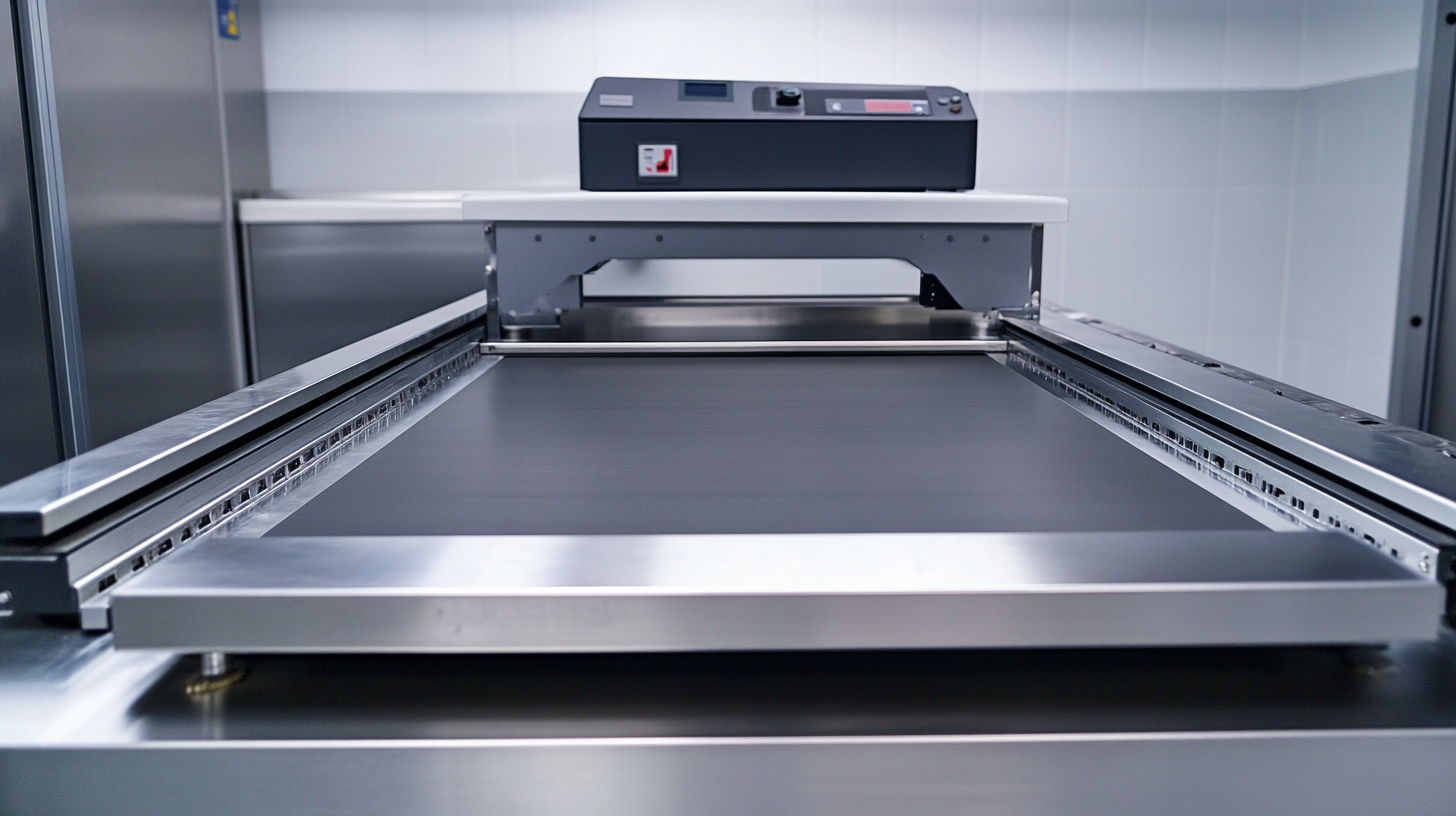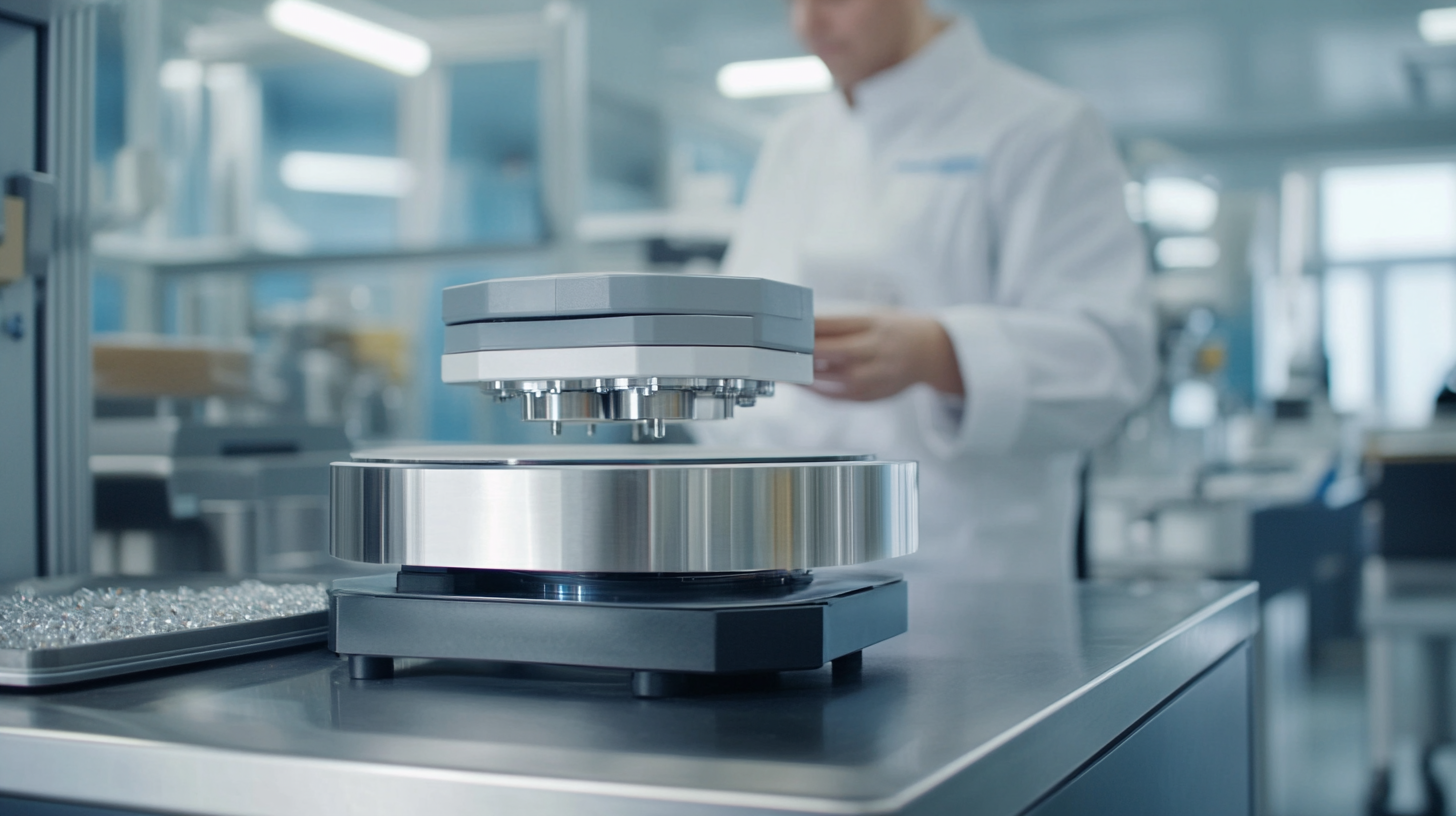In this ever-changing manufacturing industry, precision and efficiency are at the zenith of progress today. Forecasts predict that the global checkweighers market is going to witness significant growth due to the increasing need for regulatory compliance and quality assurance across a multitude of industries. A new report released by MarketsandMarkets, within the reach of the market for checkweighers, as projected by 2027, is at approximately USD 1.76 billion, with an annual growth rate of 5.7 % between 2022 and 2027. This shows how much High-Performance Checkweighers are worth for integrity ensuring as well as waste minimization, but setting up such systems is another challenge in the procurement process.
Implementing High-Performance Checkweighers is a challenge for most businesses, extending beyond the cost of purchase. Technical compatibility, the complexity of integrating into existing production lines, and the need for continued maintenance create a significant burden. Further making collection for check-weighers important is the fact that in the currently changing demands from customers as they become more strict with industry regulations in general. Precision has a direct bearing on product quality and influences the smooth flow of supply chain operations, so the need for solutions to this sourcing challenge even becomes more urgent.

Businesses must be able to determine key requirements first before sourcing checkweighers that are high-performance in nature. According to a report from MarketsandMarkets, a research company in the industry, the worldwide checkweigher market will increase from $800 million in 2021 to over $1.1 billion in 2026, which just mirrors the growing number of industries demanding accurate, efficient, weighing solutions. Under this application, the primary requirements expected from the check-weighing machines are speed, precision, and regulatory compliance-the three vital elements for product quality and safety. One of the prime problems with regard to sourcing these checkweighers is the fact that, while working at very high speeds, they need to ensure accuracy in tolerance limits specified. The Statista study said that 5% of the losses to a company can occur because of inaccurate weighing, lives up to the investment on high technology possible to minimize error rates. Joining these two points remains an important factor since the efficacy of data generation and analysis relies on seamless connectivity with existing production line and software systems. Companies should also take into account the scalability of their checkweighing solutions beyond the technical specifications. As market requirements change, one requires adaptable solutions. This is clear from research done by Allied Market Research, which finds that companies which apply scalable equipment can answer demand changes much faster than others with lower downtimes and hence, greater productivity. Once these requirements are satisfied, businesses would easily tide through the sourcing of high-performance checkweighers to further realize their future dreams in the competitive market.

In terms of accuracy, checkweighers cut right into the business and define productivity and profitability. Checkweighers of very high quality deliver very accurate measurement results, enabling organizations to stay within the legal compliance and within their quality standards. Little deviations in weight state overfilling or underfilling of products that could further lead to an increase in cost, waste of raw materials, and loss of customers. Investment on the checkweighers that will ensure better accuracy is needed for companies to ensure this benefit with regard to product integrity and streamlined production processes.
Apart from that, checkweighter accuracy creates a difference in business value. For example, a company producing packaged goods or food, where prices are charged by weight, it can win consumer confidence and loyalty by not compromising on precision. Fines imposed by a regulatory body due to not being clear perhaps destroying a company's good name may come from inaccurate weighing. Besides, organizations can embrace real-time data analytics and attribute savings in excess inventory as they effectively manage their supply chain operations; this is also a plus to the robust operating framework.
Most importantly, businesses can measure the most significant benefits on understanding and handling issues related to sourcing high-performance checkweighers. It is advised to the companies that they must have a strategic vision with regard to checkweighing solutions because more often than not, they need to focus on the initial investment as well as the benefits in the long run of accuracy. Thus, the operational efficiency they can save in the long run would be enhanced in a competitive market scenario.

Acquisition of high-tech checkweighers might be a serious organizational headache, especially in terms of budgetary considerations and ROI. Companies tend to find themselves at a tipping point: advanced technology is needed to ensure quality and compliance, but financial constraints demand careful appraising of alternatives. An awareness of both the initial investment and possible long-term savings is key to a reasoned decision.
The assessment of high-performance checkweighers should proceed with the understanding that the purchase price is but one small element in the trade-off; maintenance and operational costs must figure into this evaluation. Any reduction in the production cycle of the checkweighers, amount of product wasted, or time taken to implement corrective actions will have a direct effect on costs. Hence, saving through correct equipment purchases in the long term may justify the initial cost more readily.
Flipping this idea of maximizing returns, firms should also pay firm attention to more than just specifications, putting the suppliers' overall reliability and service support at the forefront. Reliable equipment minimizes downtime, which translates into savings. This means suppliers deserve diligent investigation and possibly partnership consideration for those willing to offer an all-around solution. A careful balance of the above will be the pointer toward overcoming the hurdles of efficient sourcing, keeping budgetary constraints in perspective.

When researching high-performance checkweighers for the production sector, assessing suppliers for reliability and technical support becomes paramount. A good supplier will ensure that not only does the supplier provide high-caliber equipment but the supplier also gives support and service thereafter, thus drastically lessening downtime and operational challenges. As per a recent Technavio industry report, the global checkweighers market is expected to grow by over 5% per annum till 2025, emphasizing, therefore, the greater need for strong supplier partnerships in an environment where every business is trying to comply with regulations and assure quality.
Considering a supplier's reliability factor needs to analyze their previous instances and customers' feedback. Suppliers provide open book information concerning products, including specifications and performance metrics; such suppliers are to be regarded as more trustworthy. According to a survey conducted by Packaging Strategies, companies cite 15% equipment failures due to supplier support inadequacy. This reinforces the need to deal with suppliers that exhibit a strong customer service attitude and real commitment after the sale, which can vastly improve operational efficiency.
Technical support is another critical aspect. Suppliers should provide comprehensive training programs and responsive technical assistance, particularly during installation and maintenance phases. That same Packaging Strategies survey showed that organizations that utilized suppliers offering extensive technical support reported a 40% reduction in operational interruptions. Identify suppliers who develop equipment and have a vested interest in your long-term success by also providing ongoing training and frequent updates, along with a quick response to technical inquiries.
The businesses are facing a very serious challenge updating its high-performance check-weighing devices in this particular rapidly changing technology world. The newly adopted technologies play an important role in enhancing operational efficiency as well as improving competitiveness. Digital transformation companies have also increased the need to demand faster, accurate, and reliable check-weighers. These developments usually go along with productivity increases, but they also require big knowledge of the latest technologies and integration within existing systems.
The introduction of big data in high-performance checkweighers makes the relevance of this reality very powerful now with emergent data-driven decision making. While industries are trying to develop more and more advanced artificial intelligence systems, manufacturing and logistics also need to innovate their equipment. High performance and fast checkweighers put pressure on them to present very quick real fight data for workflow optimization. Furthermore, businesses have to contend with compatibility with other digital systems and dislocations during integration.
They will be needing to invest money, time, and effort training people on how to operate the new technology, but especially on how to troubleshoot problems that may arise. The whole industry could very well be experiencing a shift in this direction wanting high-performance lightweight solutions to be adopted. Overall, this will indicate yet another common challenge for which companies will find it to be adaptable in sourcing leading-edge equipment. By accepting the end of such challenges, the capacity of companies to optimize their operational efficiency will greatly improve, and they will establish themselves amongst the leaders in their field.
The primary key requirements include speed, precision, and compliance with regulatory standards to ensure product quality and safety.
Inaccuracies in weighing can lead to financial losses of up to 5% for businesses, making it critical to invest in advanced technology that minimizes error rates.
Seamless connectivity with existing production lines and software systems ensures effective data capture and analysis in real-time, enhancing operational efficiency.
Scalability allows businesses to adapt to evolving market needs, reducing downtime and increasing productivity by responding efficiently to changing demand.
High accuracy helps maintain compliance with regulations and quality standards, preventing issues like overfilling or underfilling, which can lead to increased costs and waste.
Inaccuracies can result in hefty fines from regulatory bodies, damage to a company's reputation, as well as loss of customer trust and brand loyalty.
Businesses can improve supply chain management, better forecast demands, and reduce excess inventory, leading to a more robust operational framework.
Companies should focus on the long-term advantages of accuracy and how it contributes to operational efficiency and overall performance.
The global checkweigher market is expected to grow from $800 million in 2021 to over $1.1 billion by 2026, indicating increasing demand for accurate weighing solutions.
Investing in these solutions allows businesses to streamline production processes, uphold product integrity, and ultimately enhance overall productivity in a competitive market.